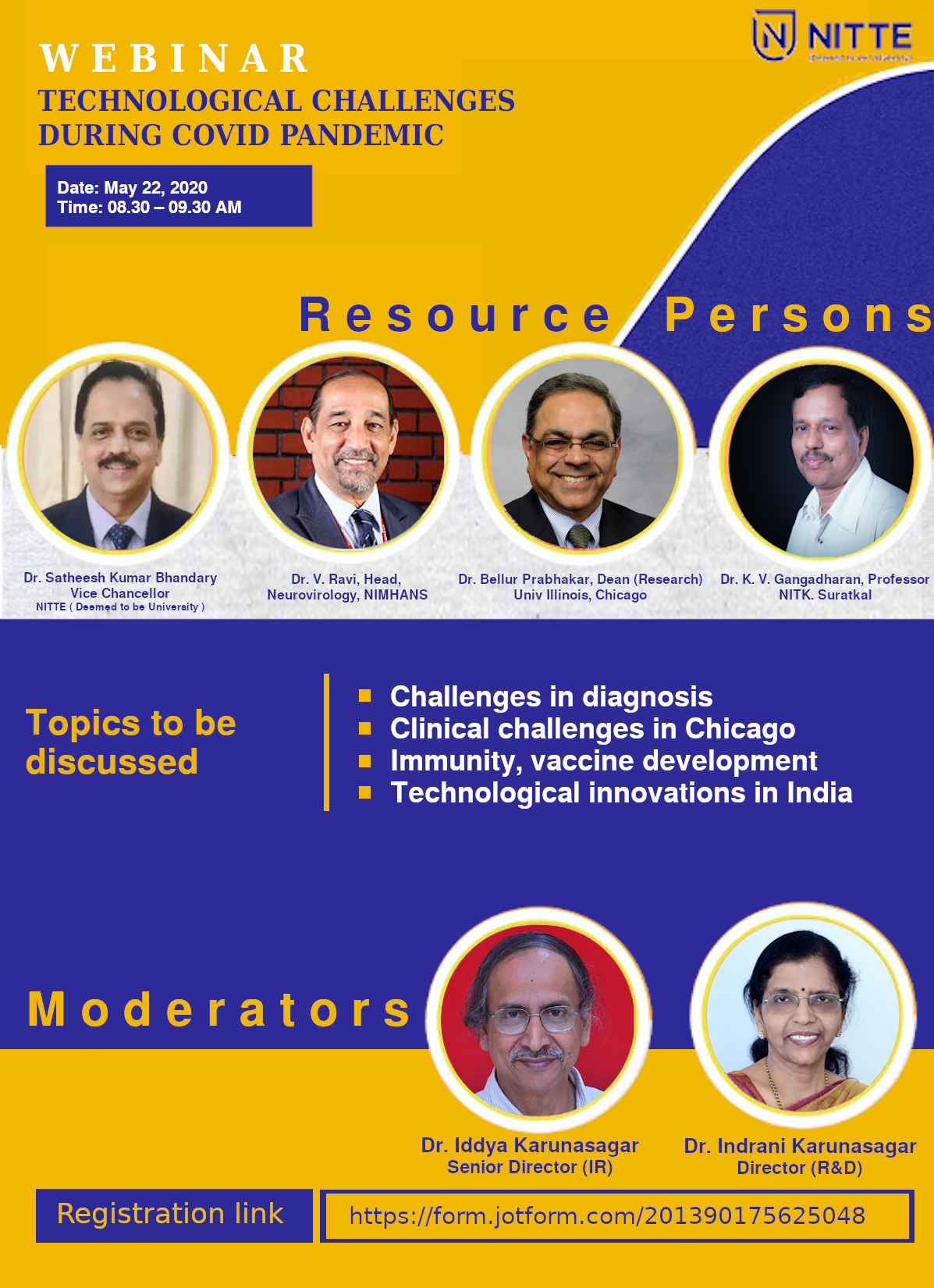Webinars Conducted
AWARDS AND FELICITATION CEREMONY NATIONAL SCIENCE DAY
Date : 2025-02-28
Link : NA
Last updated 2025-03-13 06:06:53
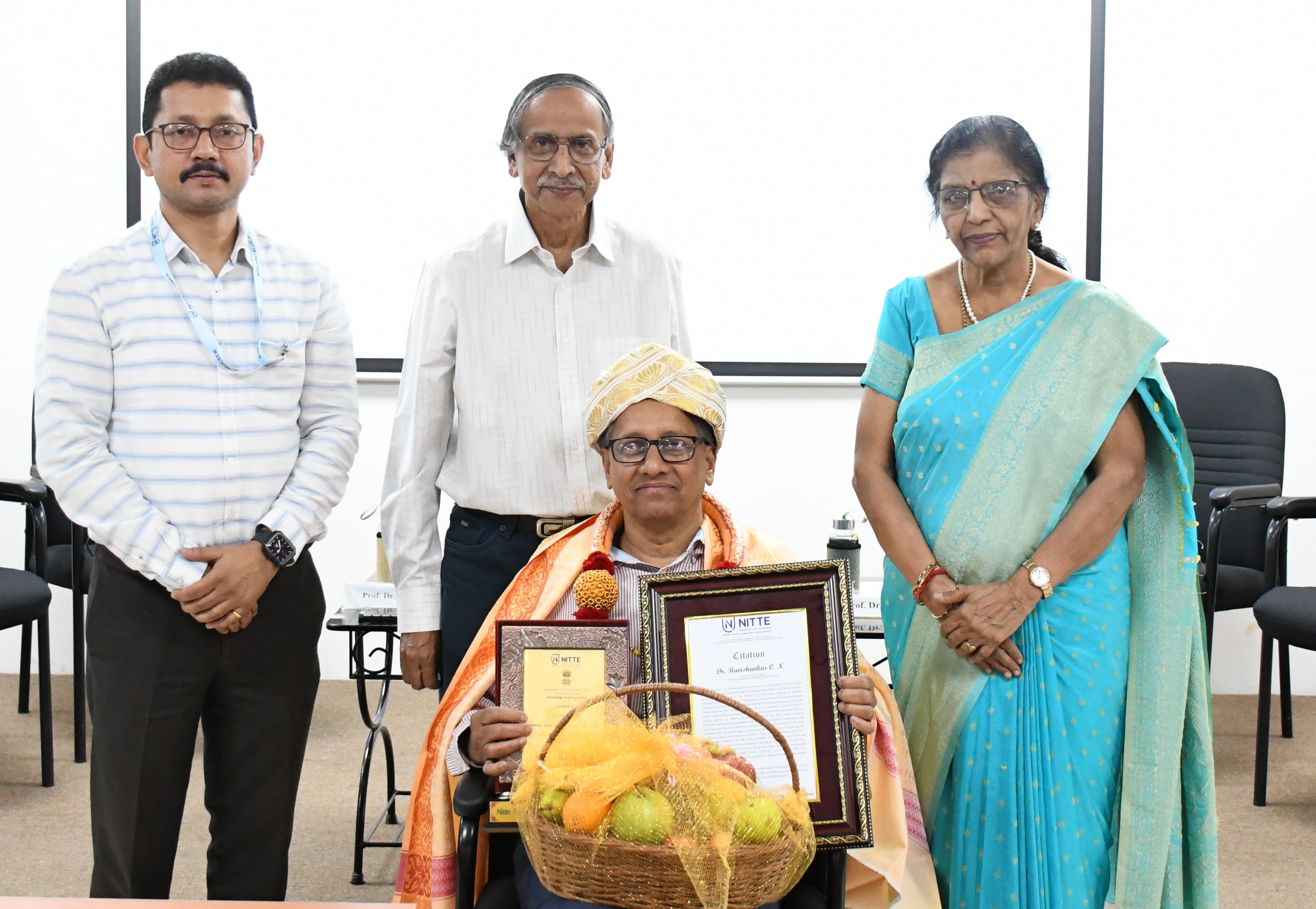
Webinar on "Avoiding AMR together: Ensuring healthy and safe aquatic foods"
Date : 2023-11-27
Last updated 2024-04-30 10:22:23
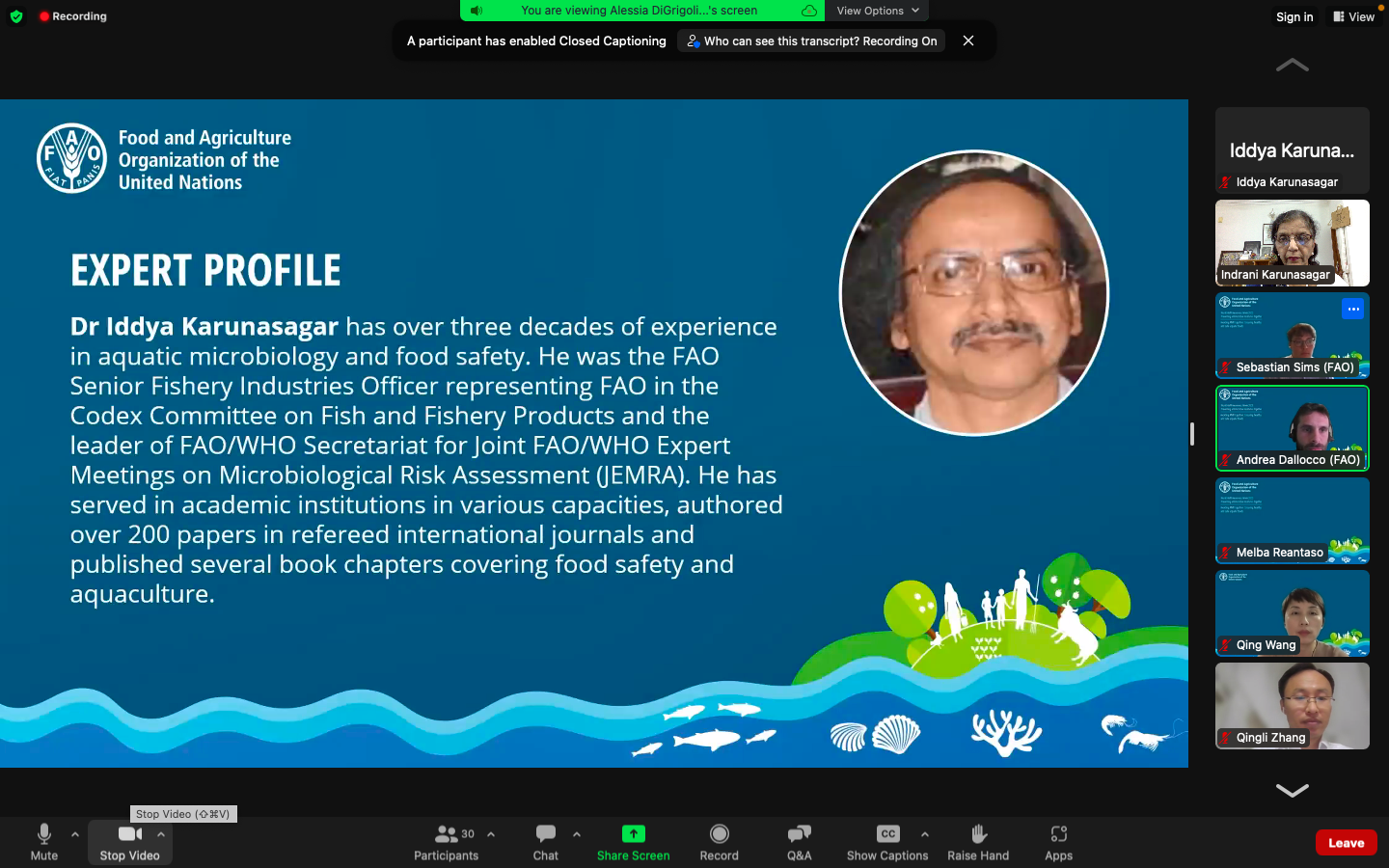
Talk on Dissemination of AMR in environment through waste water
Date : 2023-11-22
Last updated 2024-04-30 10:38:55
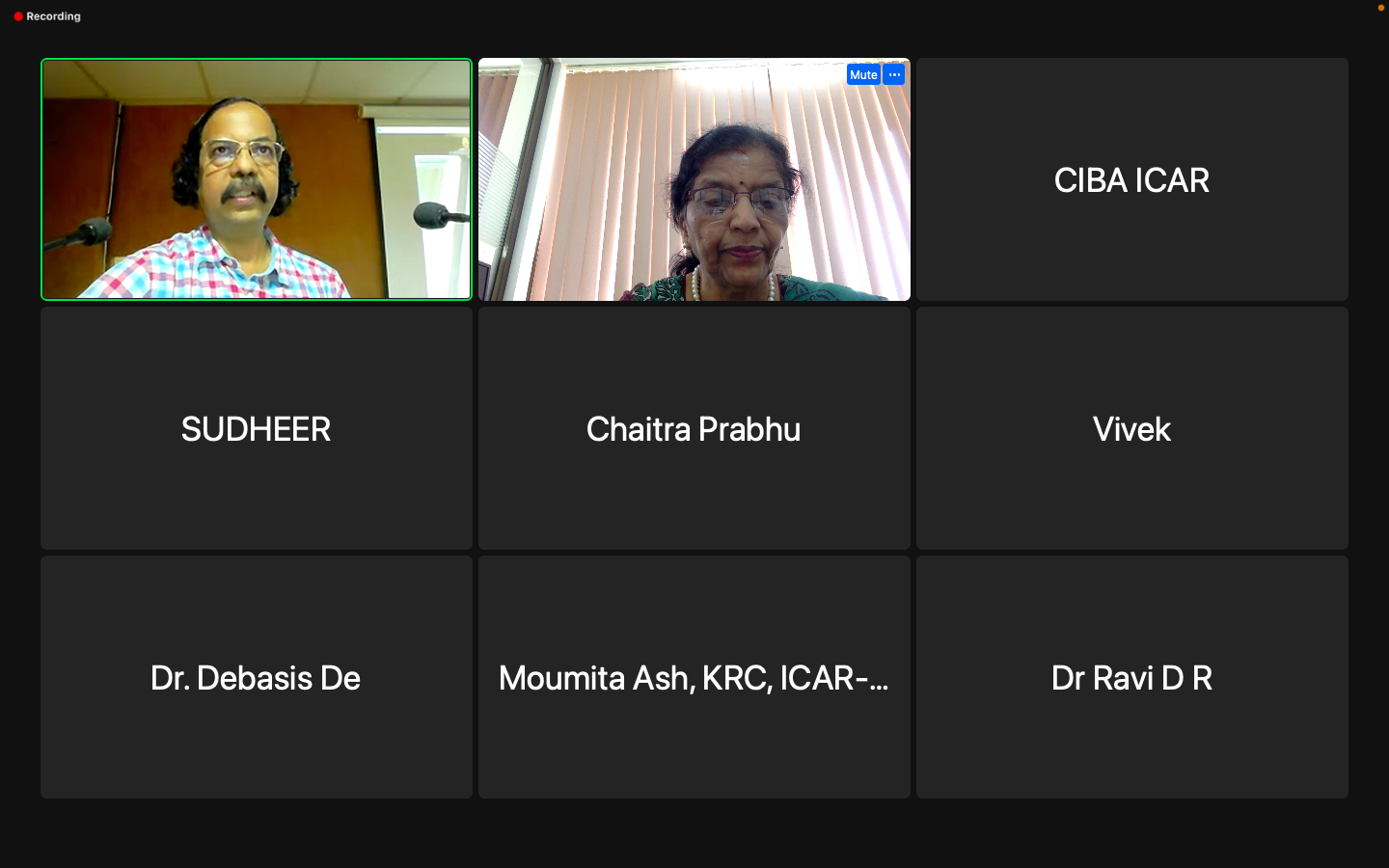
Guest Lecture on One Health Approach in AMR
Date : 2023-11-17
Last updated 2024-04-30 10:37:14
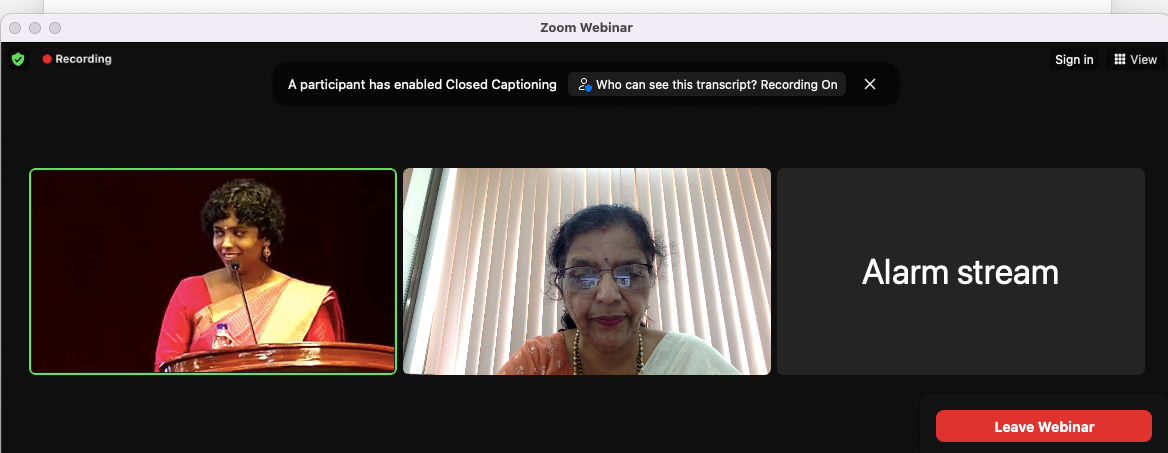
Lecture on “A glimpse of cardiology research: Cyclophilin A as a risk biomarker in diabetic patient with CVD”
Date : 2023-09-27
Last updated 2023-11-18 06:59:24
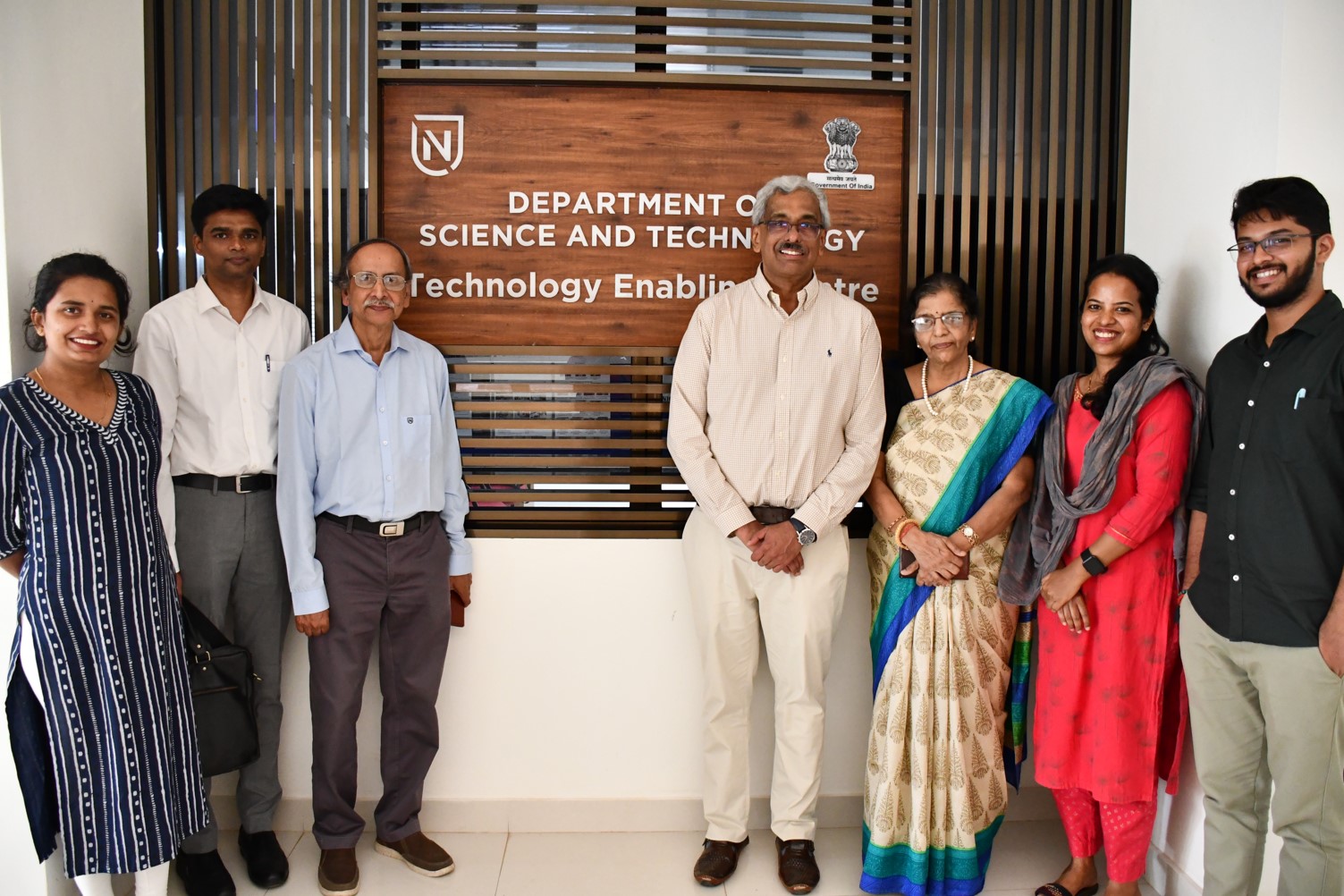
World Entrepreneurs Day
Date : 2023-08-21
Last updated 2023-11-18 07:12:30
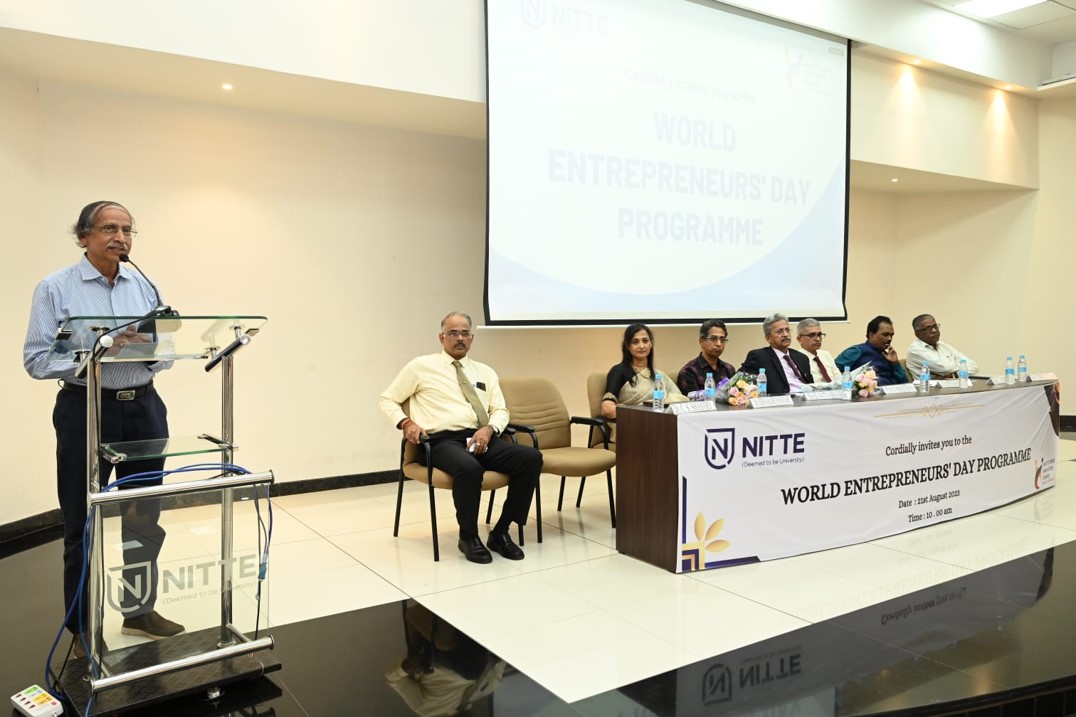
Lecture Programme on “INNOVATION TO STARTUP”
Date : 2023-07-07
Last updated 2023-11-20 04:12:39
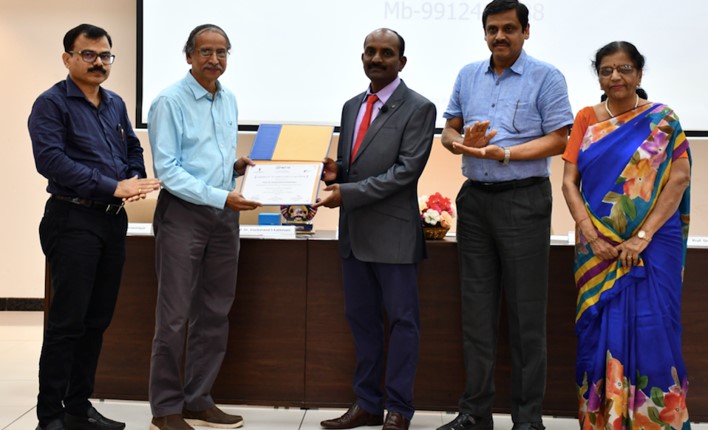
World Ocean Day Lecture
Date : 2023-06-08
Last updated 2023-11-18 07:31:31
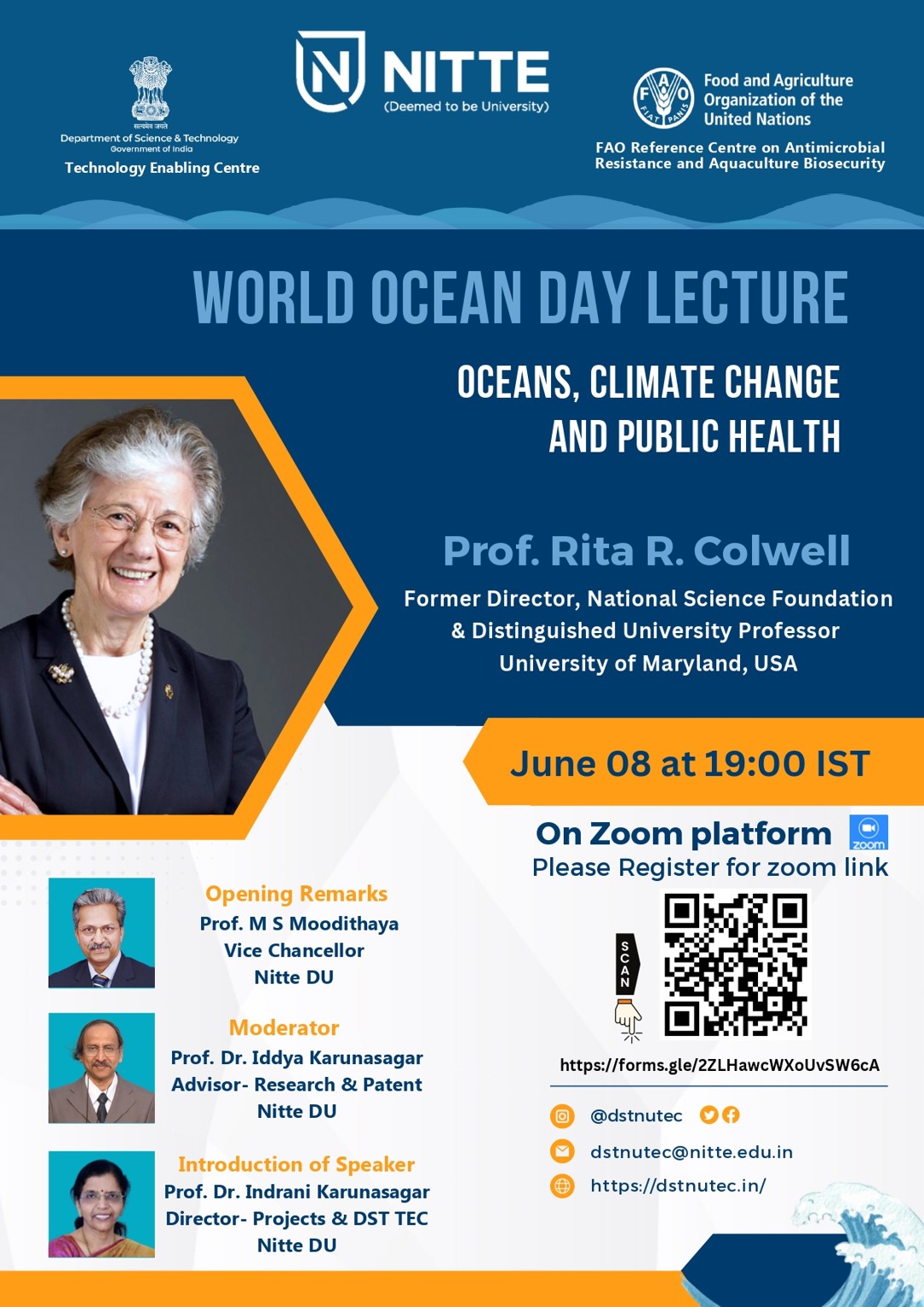
CREATING AWARENESS ABOUT FOOD SAFETY STANDARDS - NITTE UNIVERSITY ORGANISES WORKSHOP TO MARK WORLD FOOD SAFETY DAY 2023
Date : 2023-06-07
Last updated 2023-11-18 05:33:04
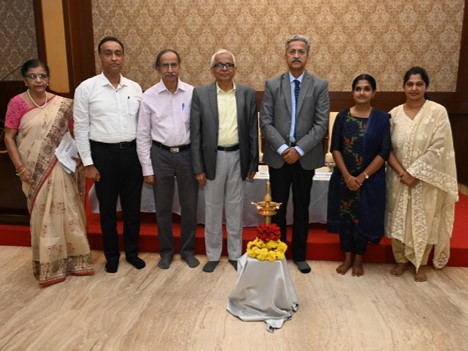
National Intellectual Property Awareness Mission Webinar
Date : 2022-05-12
Last updated 2022-06-14 04:24:07
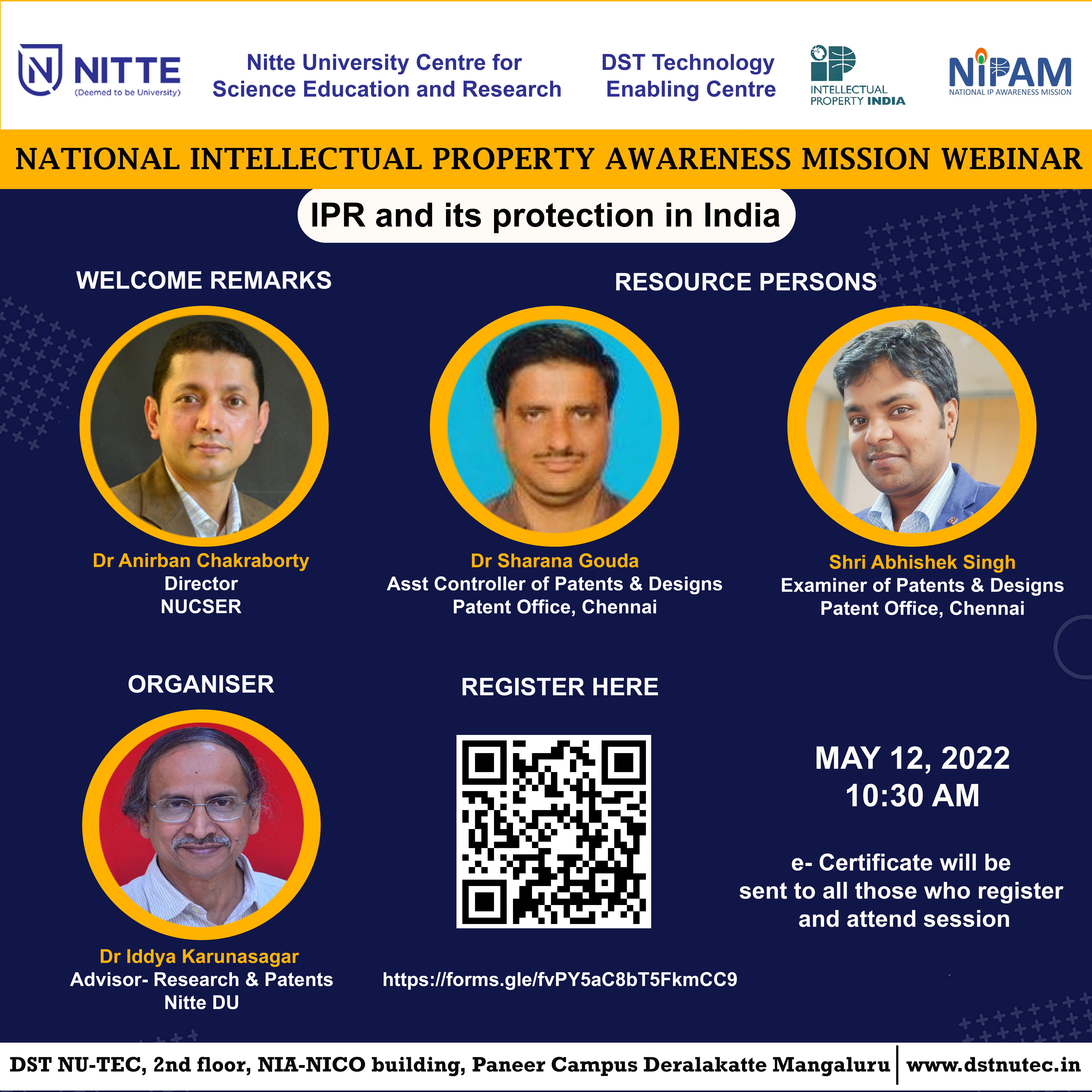
National Technology Day Lecture
Date : 2022-05-11
Last updated 2022-06-14 04:20:14
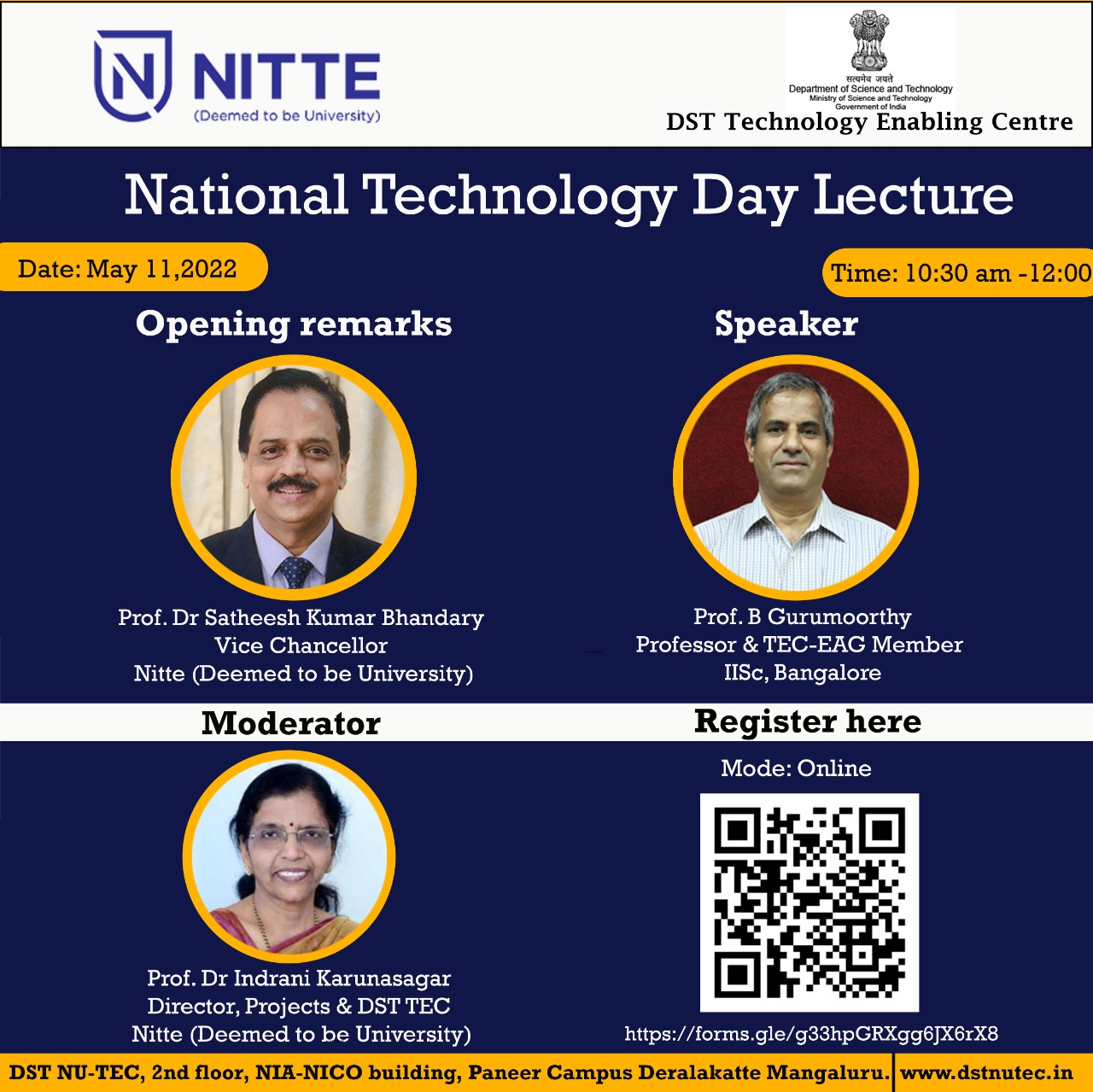
Panel discussion on Technology Commercialization
Date : 2022-02-08
Last updated 2022-04-04 06:57:57
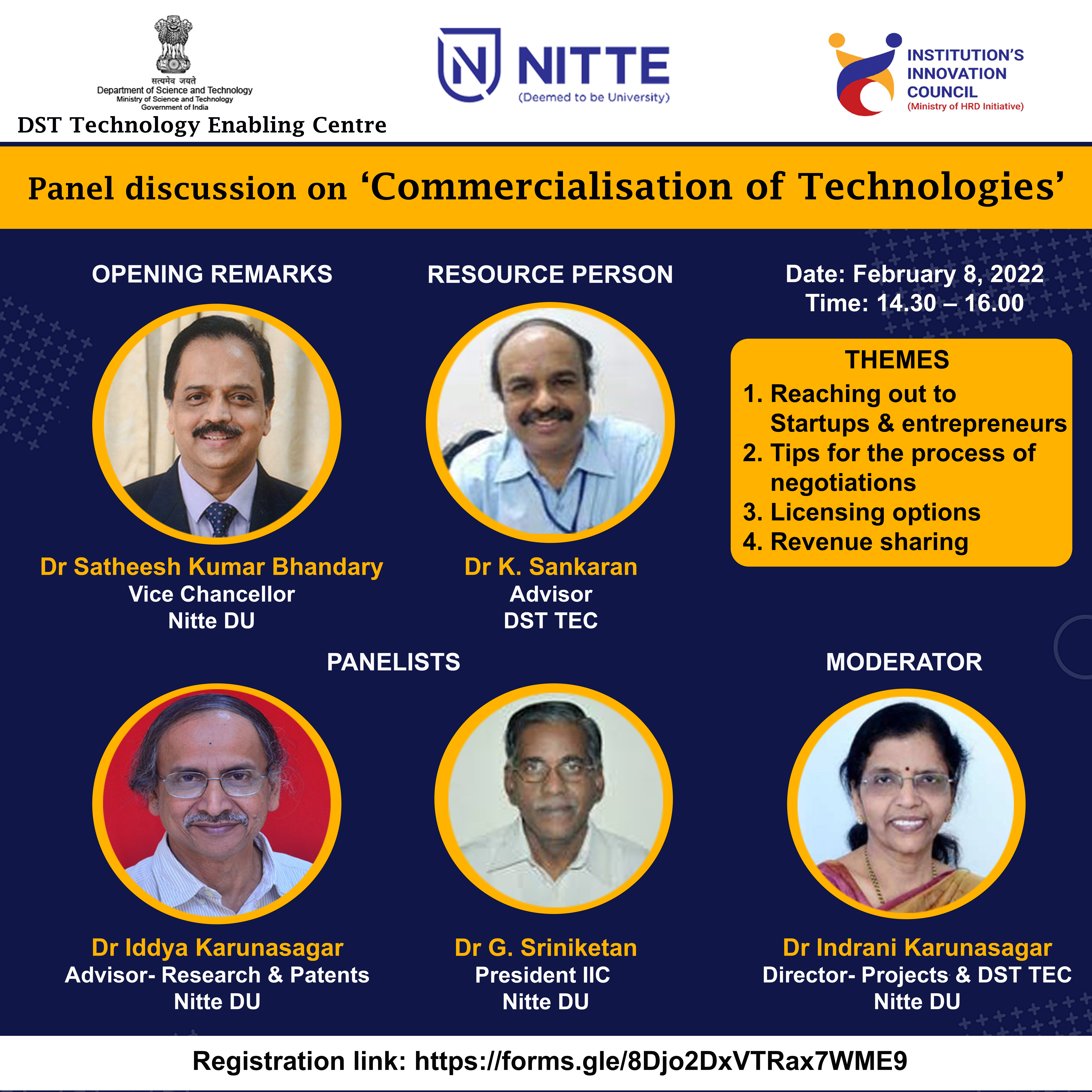
Guidance Session for potential applicants of BIRAC BIG (Biotechnology Ignition Grant)
Date : 2022-01-24
Last updated 2022-10-11 10:50:05
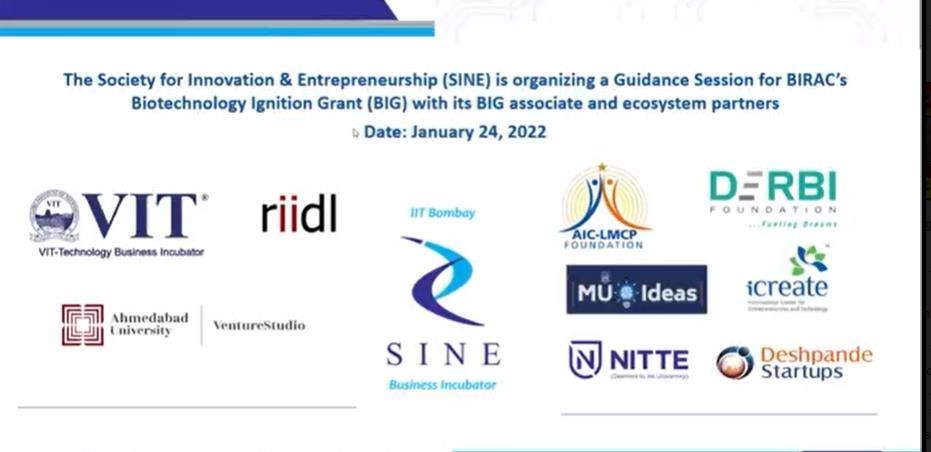
MICROBIOLOGICAL RISK ASSESSMENT IN FOOD SAFETY
Date : 2021-12-13
Last updated 2022-02-26 05:38:37
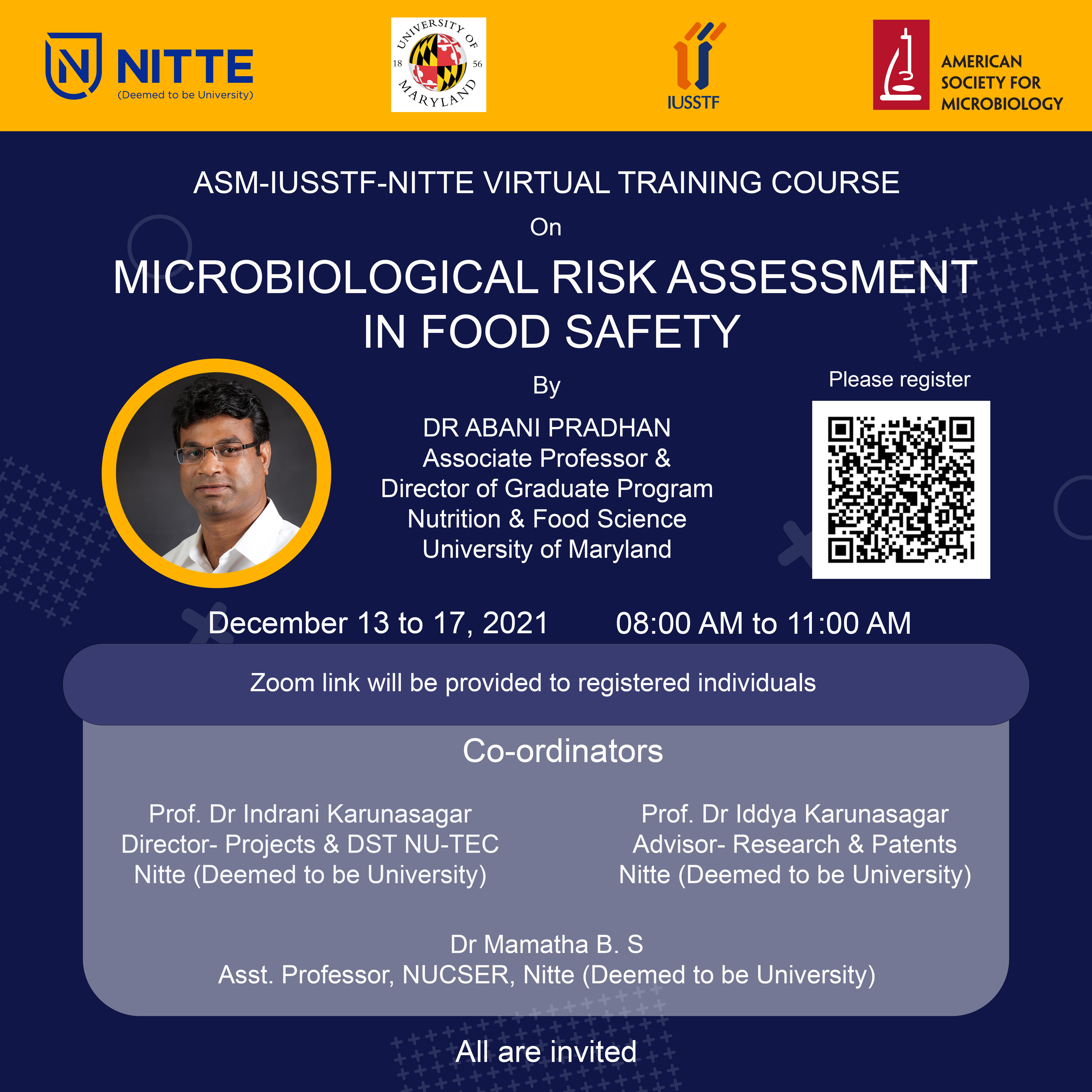
Mitigating Antimicrobial Resistance in One health
Date : 2021-11-26
Last updated 2022-02-26 06:50:38
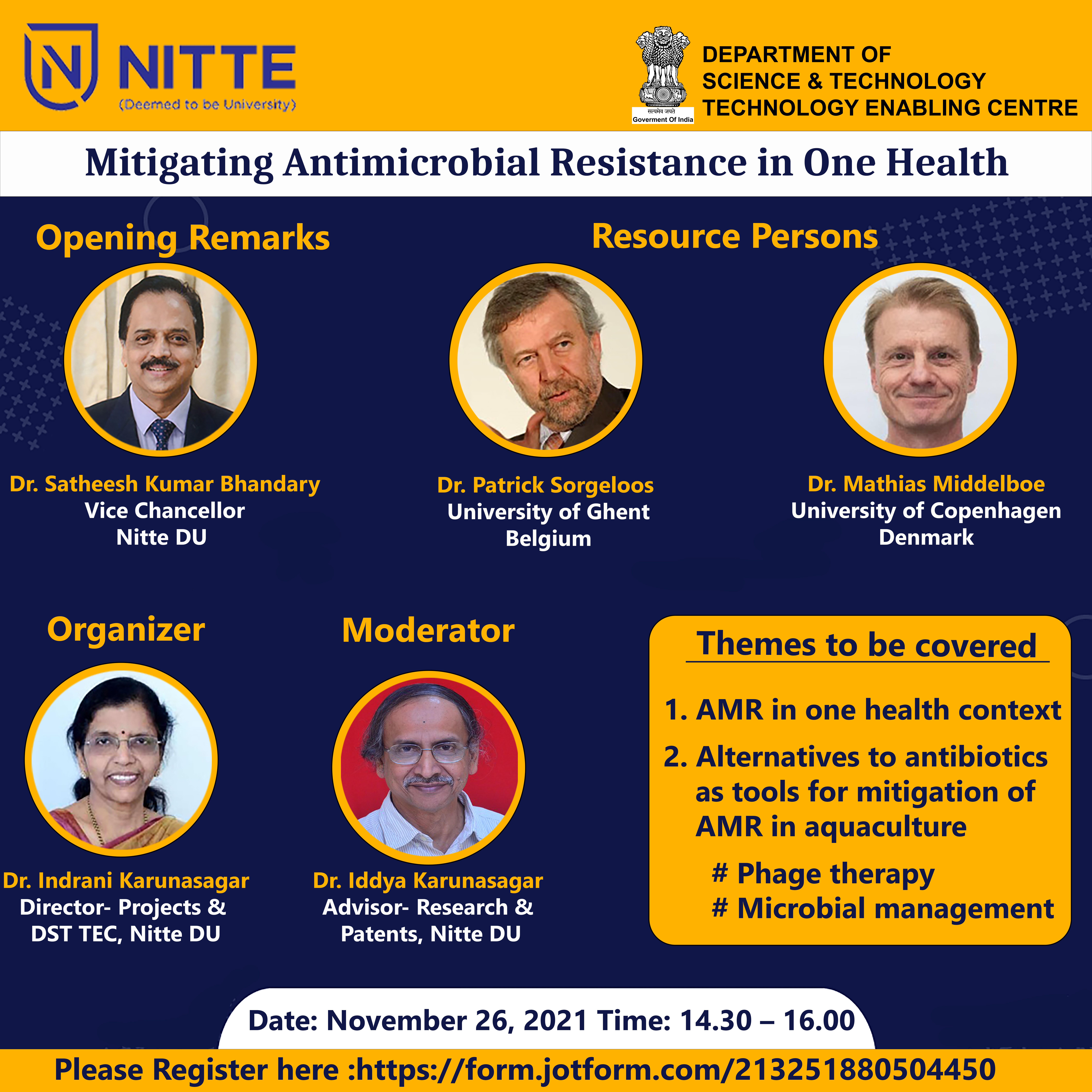
WEBINAR ON WORLD FOOD DAY
Date : 2021-10-18
Last updated 2022-02-26 06:48:43
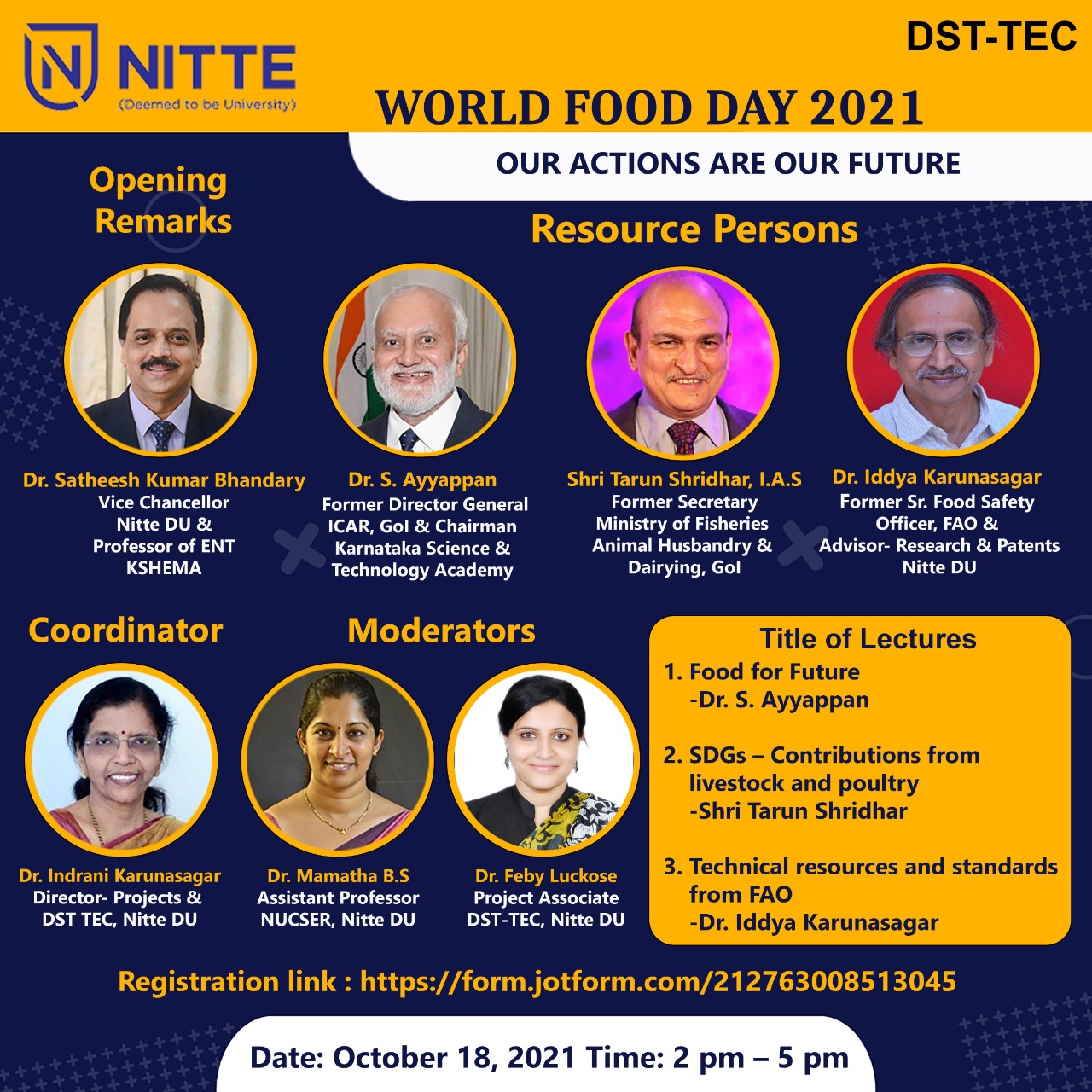
IPR IN BIOTECHNOLOGY AREA
Date : 2021-10-06
Last updated 2022-02-26 05:41:48
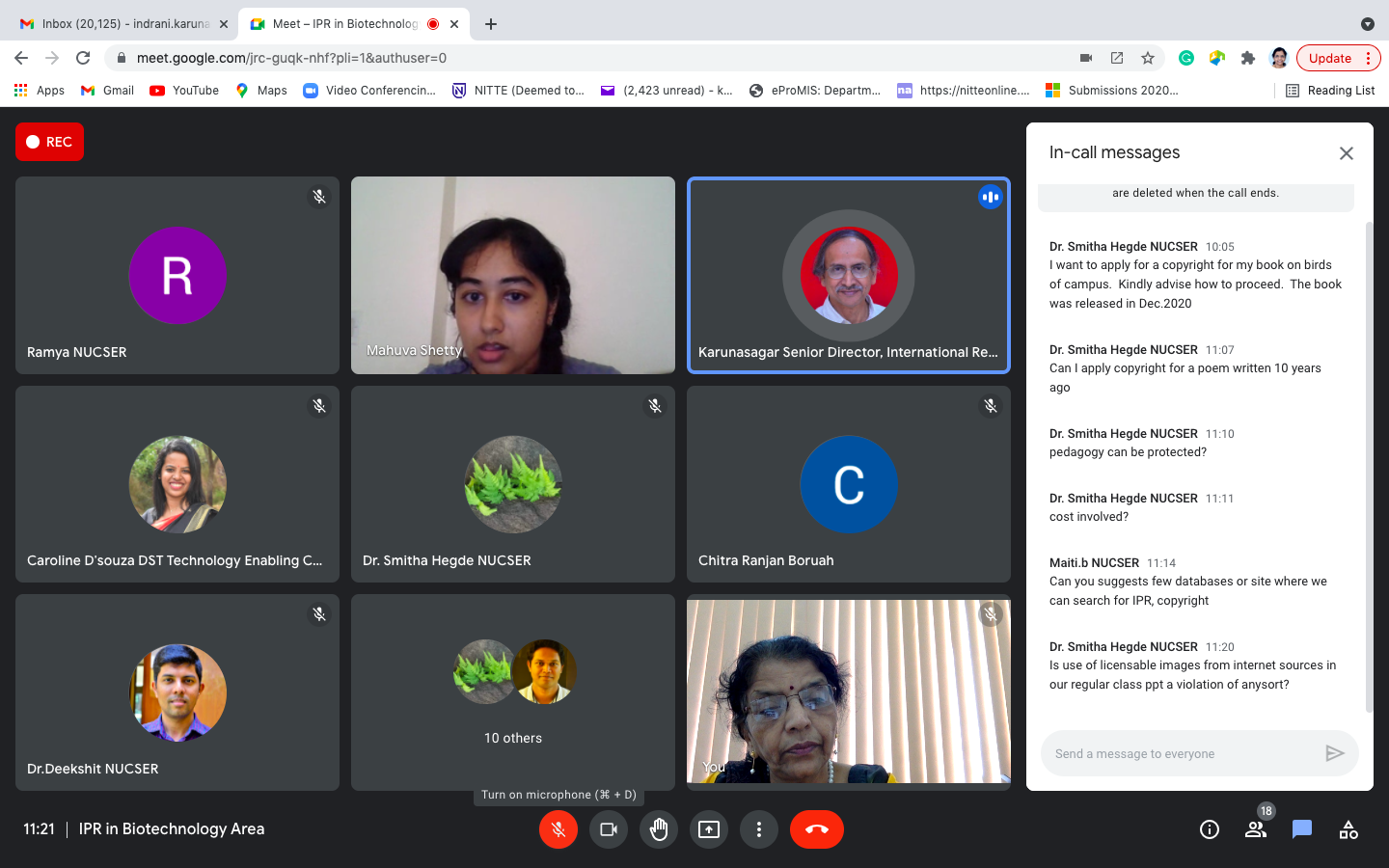
Ethics in Biomedical and Health Research: Perception and Practice
Date : 2021-07-05
Link : https://www.youtube.com/watch?v=x2J9JJCmozs&t=5728s
Last updated 2021-12-29 07:33:47
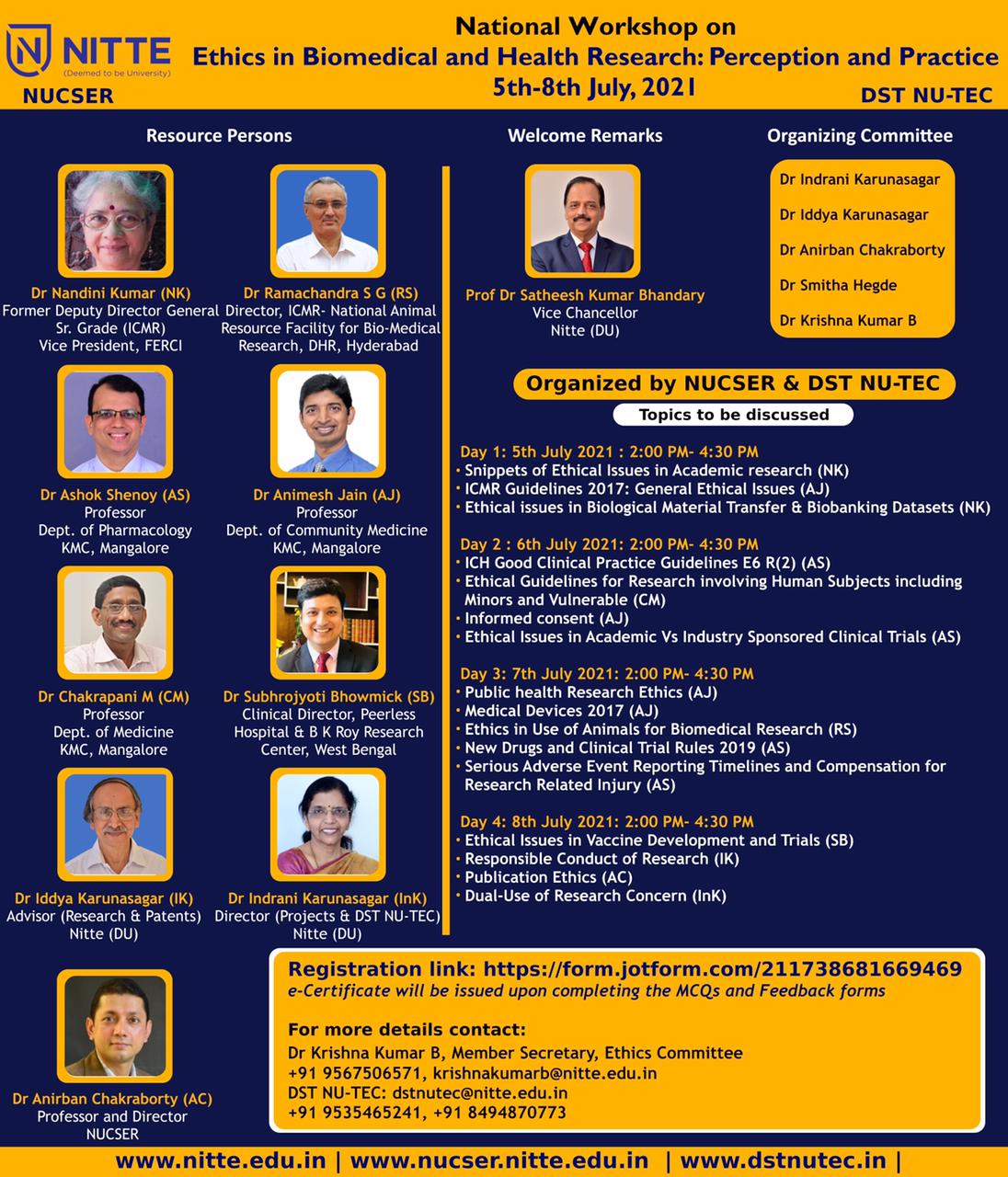
Webinar on “Preparedness for the third wave of Covid-19 and prioritisation of children”
Date : 2021-06-25
Link : https://www.youtube.com/watch?v=l7cdZz33Y9I
Last updated 2021-07-13 10:35:22
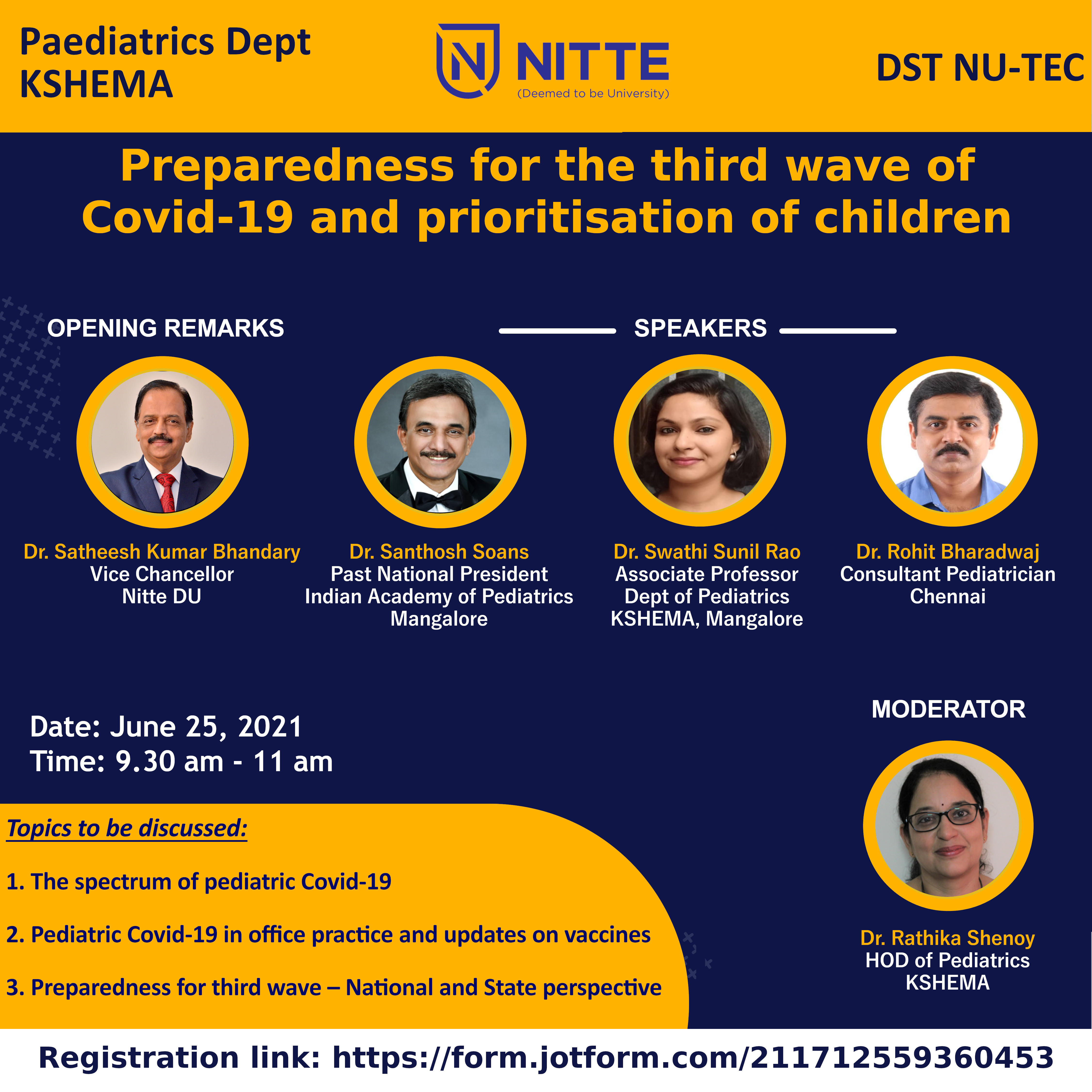
Strengthening National Food Safety System- Challenges in the era of Covid19
Date : 2021-06-07
Link : https://www.youtube.com/watch?v=r1RAhI-sKak&t=4s
Last updated 2021-12-29 07:36:46
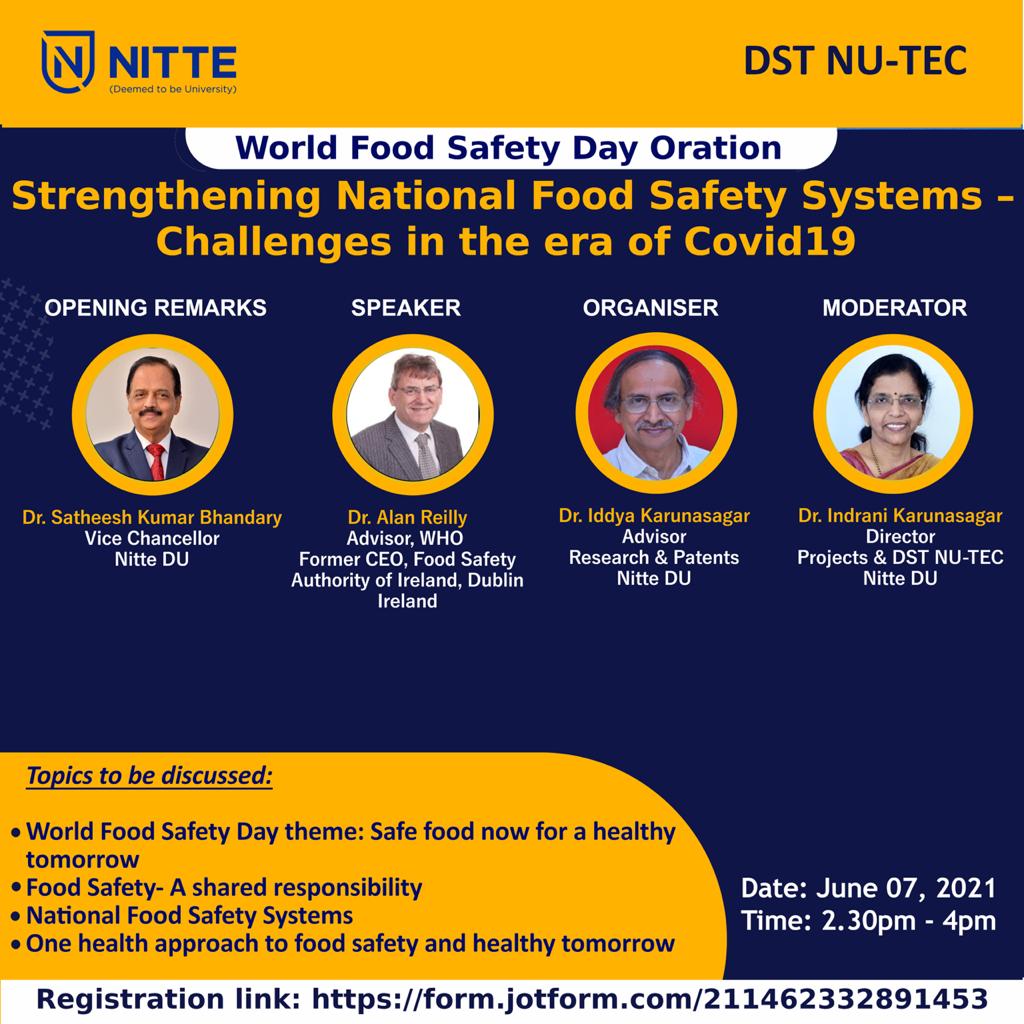
Webinar on "Strengthening National Food Safety Systems Challenges in the era of Covid19"
Date : 2021-06-07
Link : https://www.youtube.com/watch?v=r1RAhI-sKak
Last updated 2022-10-11 10:50:56
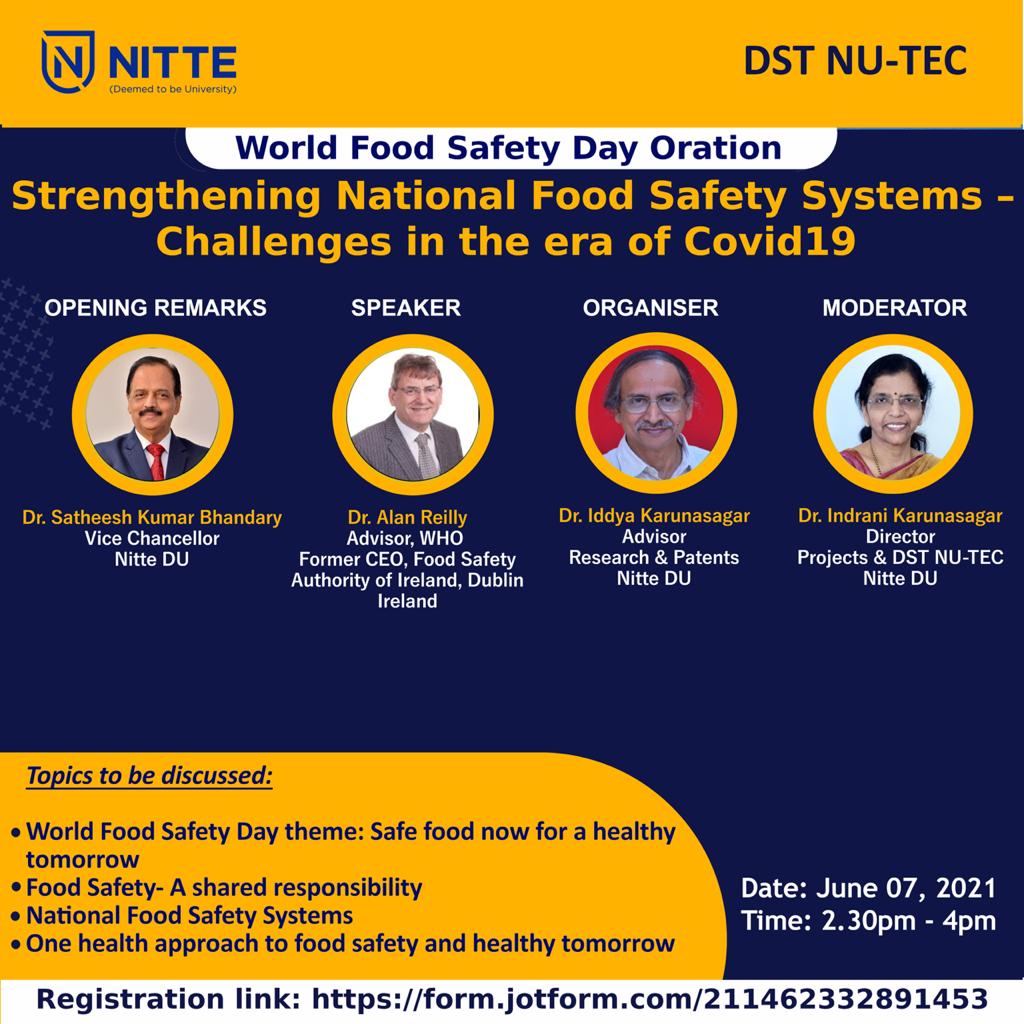
Webinar on "Biological Diversity Act -2002"
Date : 2021-06-05
Link : https://www.youtube.com/watch?v=I1lsHYdH9sE
Last updated 2021-06-14 06:22:20
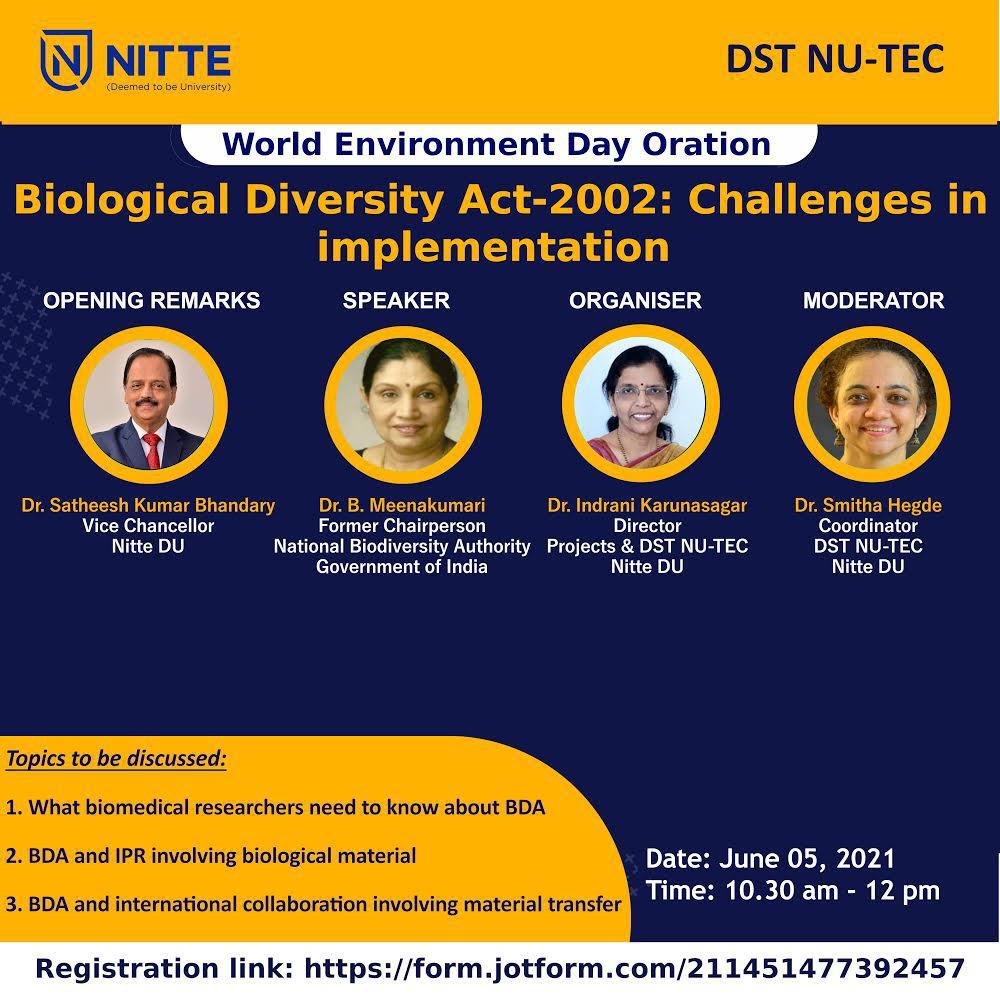
Webinar on “Lessons from Covid-19 second wave”
Date : 2021-05-21
Link : https://www.youtube.com/watch?v=th_KncSBrSI
Last updated 2021-06-14 06:19:07
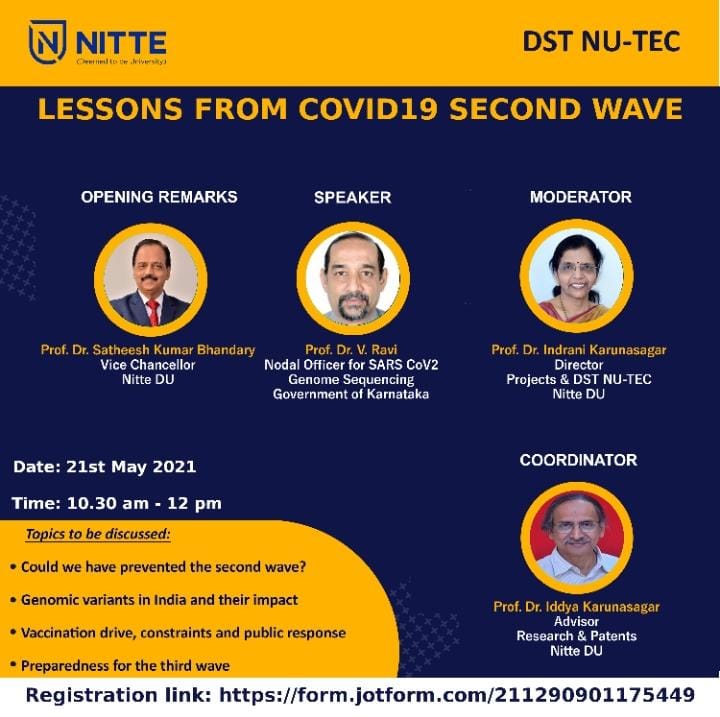
Webinar on “Entrepreneurship and startup ecosystem in campuses”
Date : 2021-03-22
Link : YouTube Link: https://www.youtube.com/watch?v=bKtH0-IyYao
Last updated 2021-06-16 05:07:48
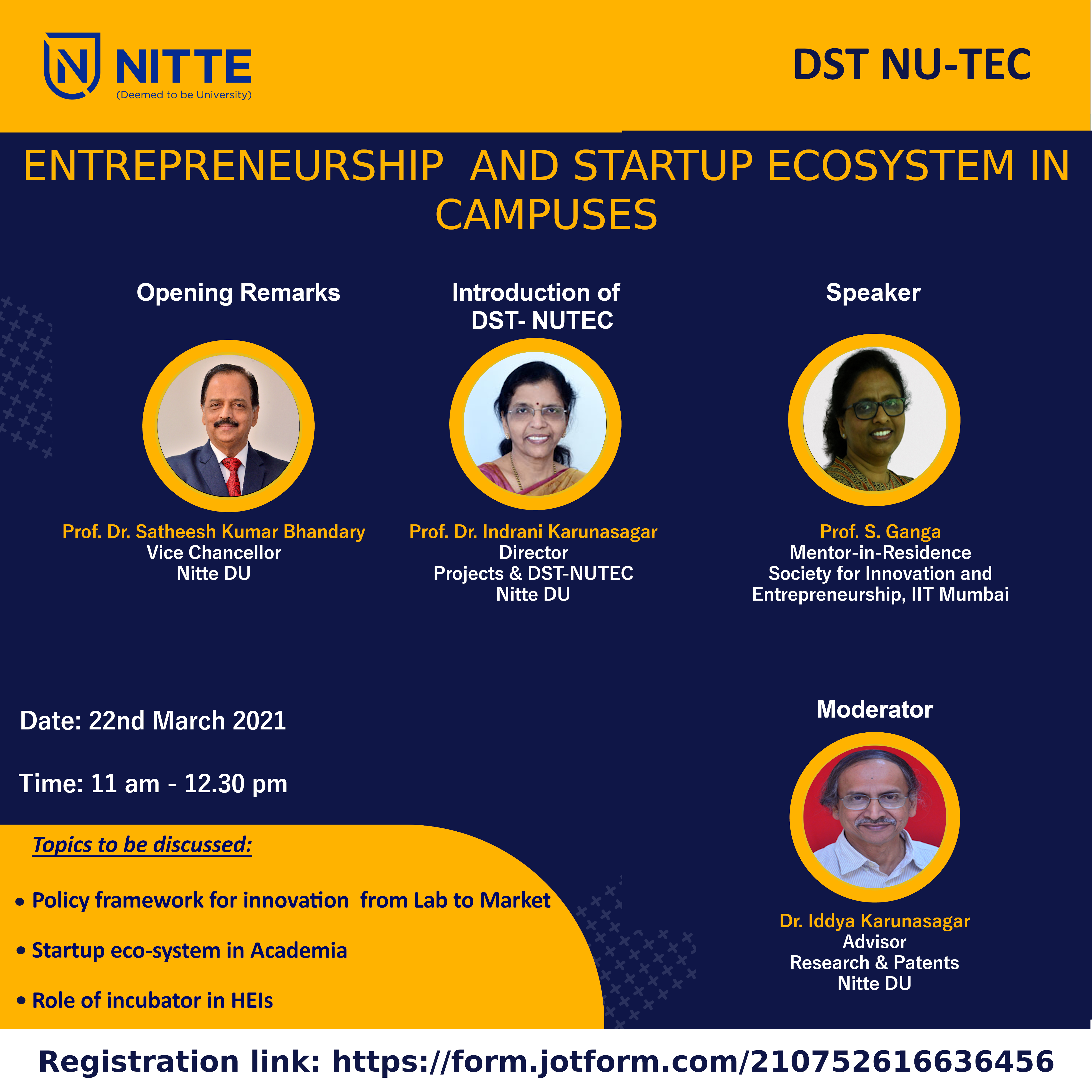
World Food Day
Date : 2020-10-16
Link : https://www.youtube.com/watch?v=-0cTg9zKxbE
Last updated 2021-02-13 04:46:42
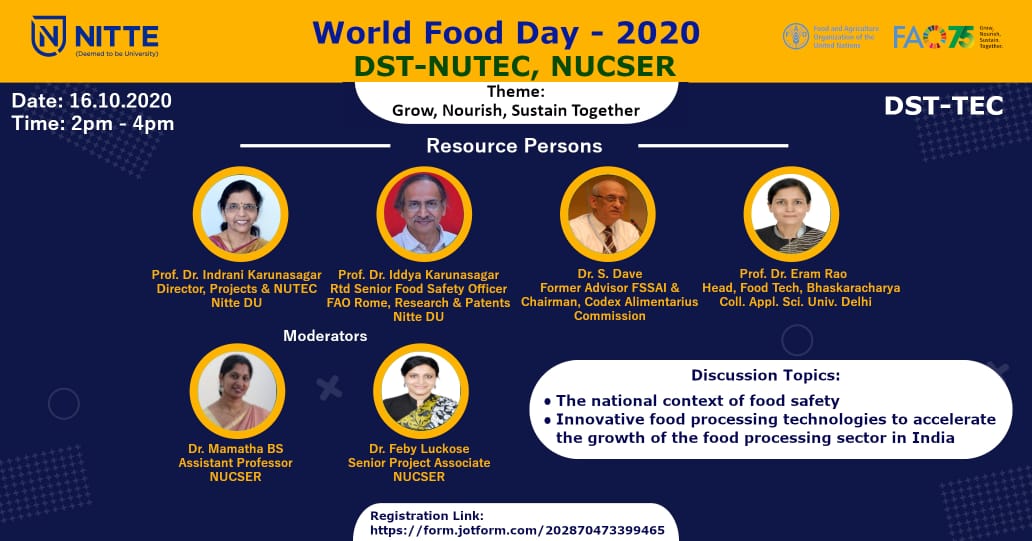
Interferon’s and cytokines in viral diseases and implications for COVID-19
Date : 2020-09-22
Link : https://www.youtube.com/watch?v=wqumLNTWCS4
Last updated 2021-02-13 04:30:44
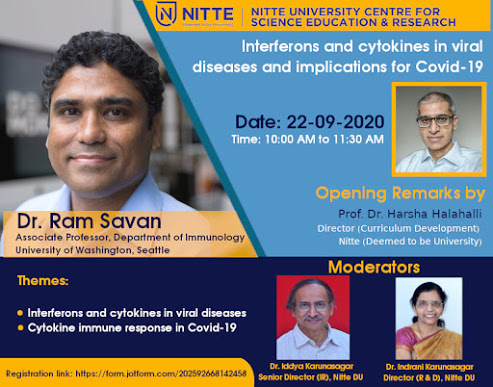
Medical device requirements for clinicians
Date : 2020-08-20
Last updated 2021-02-13 04:45:09
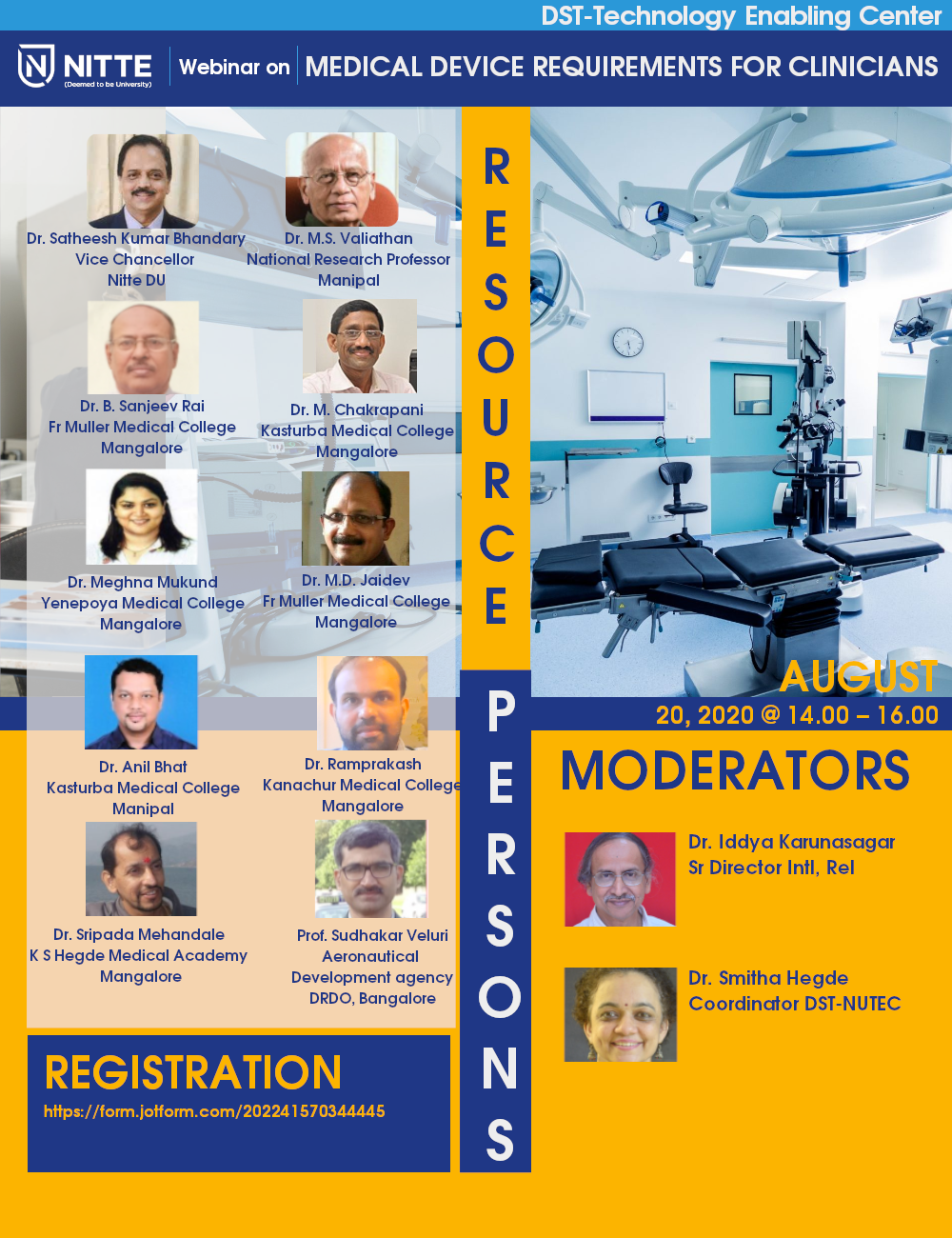
Research requirements of Food Industry
Date : 2020-07-24
Link : https://www.youtube.com/watch?v=zRHsYiR13zA
Last updated 2021-02-13 04:39:14
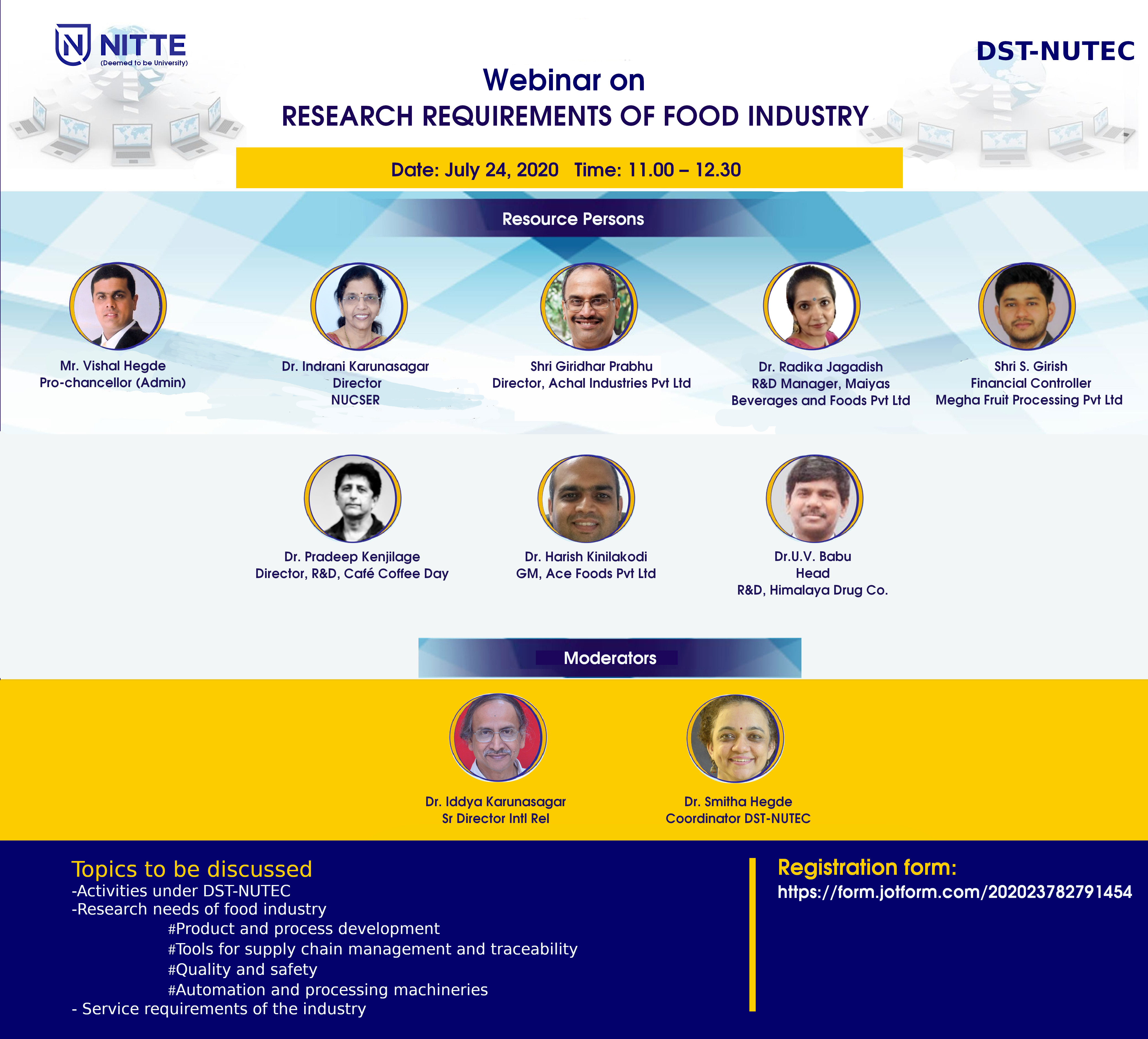
Research and development and IPR during COVID-19
Date : 2020-05-26
Link : https://www.youtube.com/watch?v=RKMai5-DVZg
Last updated 2021-02-13 04:28:35
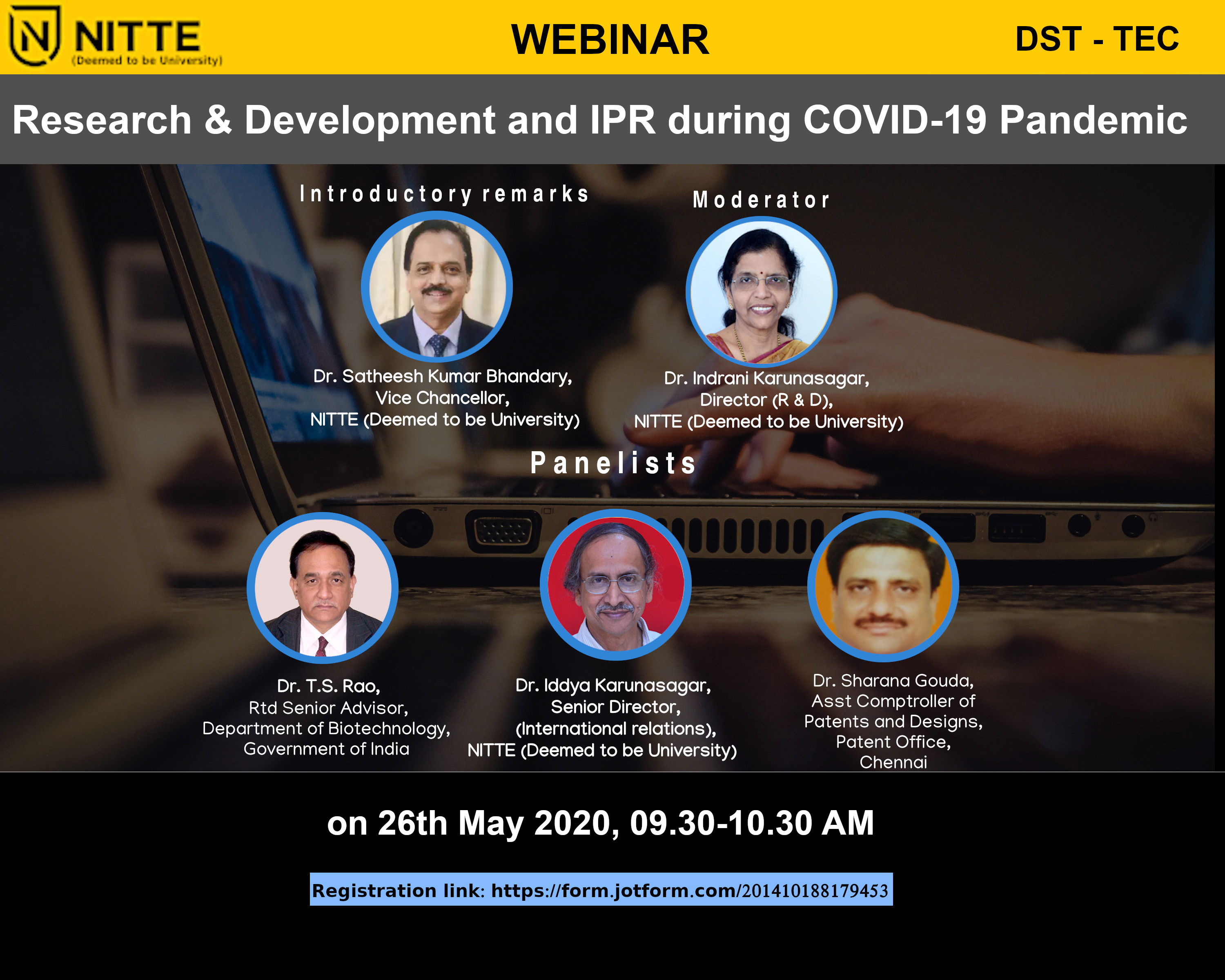
A functional genomics approach to dissect heterogeneity in COVID-19 outcome
Date : 2020-05-22
Link : https://www.youtube.com/watch?v=JW2MEfy2CrY
Last updated 2021-02-13 04:27:08
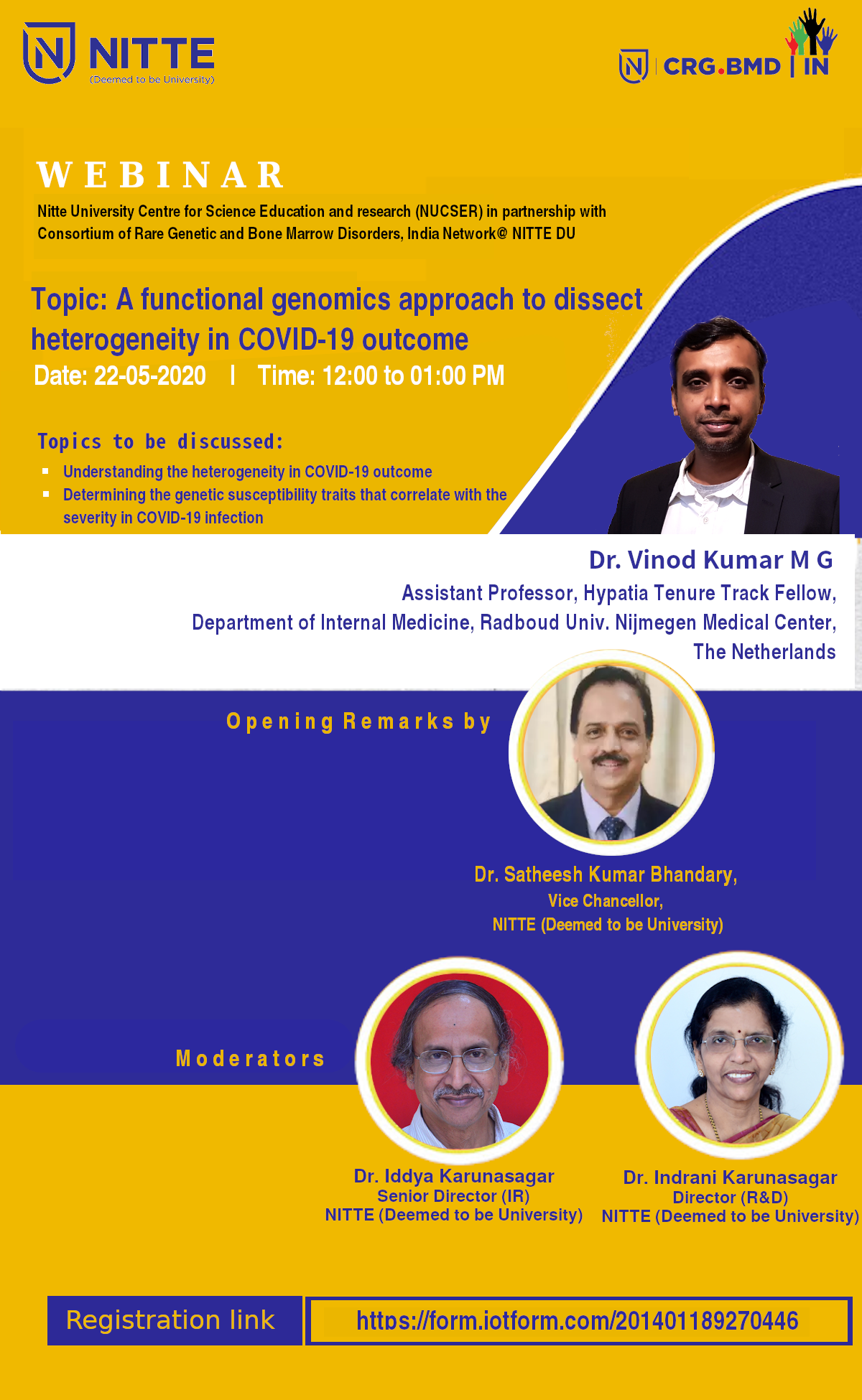
Technological Challenges during Covid Pandemic
Date : 2020-05-22
Link : https://www.youtube.com/watch?v=RLzjChs7wcc
Last updated 2022-10-12 04:33:55
